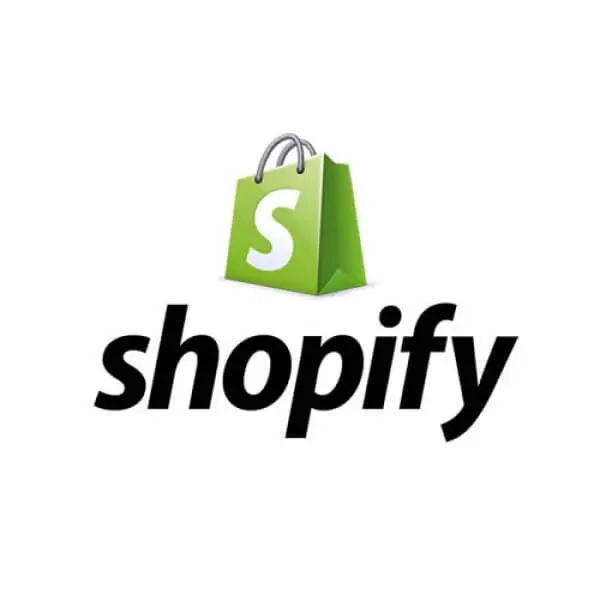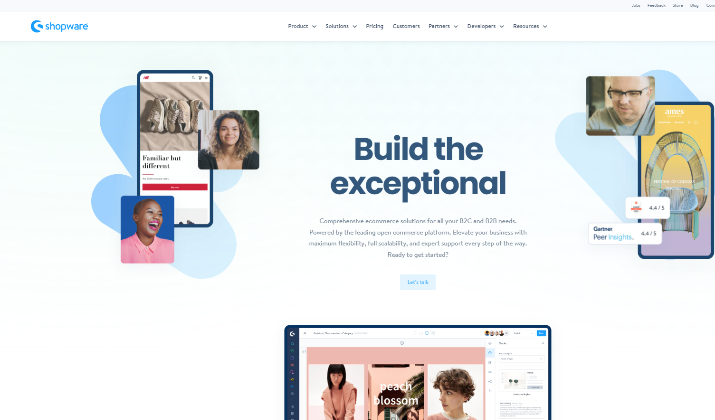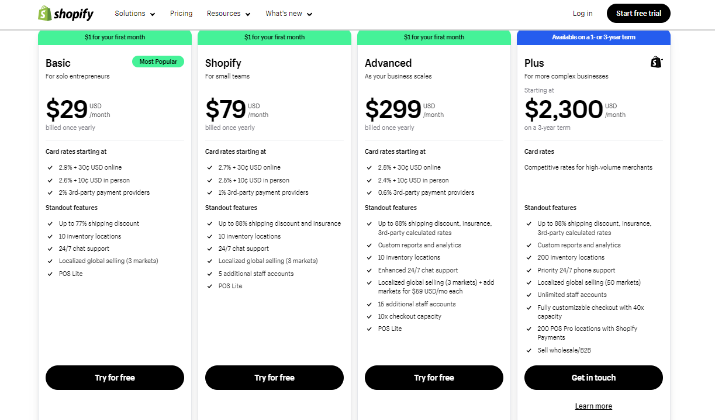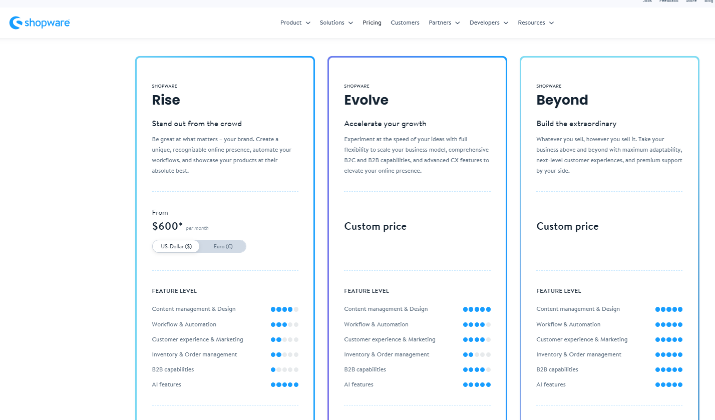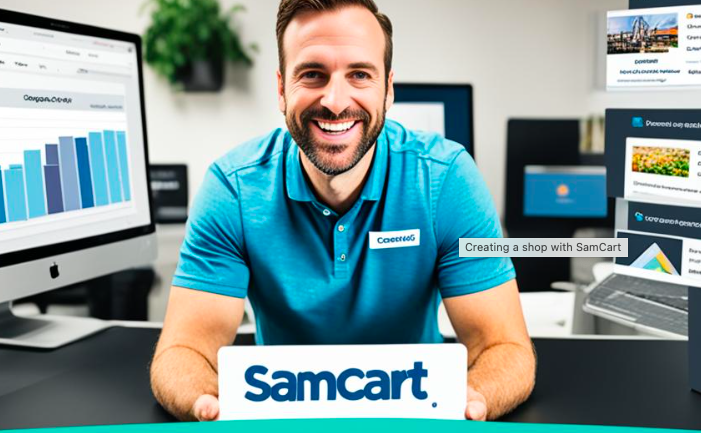In the ever-evolving landscape of ecommerce, two players, Shopify and Shopware, have emerged as prominent platforms.
Both these ecommerce platforms aim to provide businesses with robust solutions for building and managing their online businesses.
But which one reigns supreme?
Today, we’ll explore the strengths and weaknesses of these two leading platforms, guiding you to make an informed decision that aligns with your business goals and aspirations.
Let’s dive in.
Introduction
Shopify
Shopify is a cloud-based ecommerce platform that provides a comprehensive suite of tools and features for businesses to set up, manage, and grow their online stores.
It is known for its user-friendly interface, wide selection of customizable themes, and extensive app ecosystem that allows for the integration of various functionalities.
The platform is renowned for its intuitive and straightforward approach, making it an appealing option for businesses of all sizes, from small startups to large enterprises.
The platform’s drag-and-drop page builder and seamless integration of various functionalities contribute to a smooth user experience, catering to the needs of ecommerce entrepreneurs and online store owners.
Also read: Sellfy vs Gumroad
Try Shopify free followed by first month at just $1. No credit card required. Limited Time Offer.
Shopware
Shopware is an open-source ecommerce platform that is highly customizable and scalable, making it a popular choice for mid-sized to large enterprises, particularly in the B2B and B2C sectors.
Shopware’s open-source nature and advanced feature set allow for a high degree of flexibility, enabling businesses to tailor the platform to their unique requirements and evolving ecommerce needs.
Check out: Sellfy vs Stan Store
User Experience
Shopify
When it comes to the user experience, Shopify is often praised for its intuitive and straightforward interface, which makes it an attractive option for beginners and small businesses.
The platform’s drag-and-drop page builder and seamless integration of various functionalities contribute to a smooth user experience.
Shopify’s user-friendly design and intuitive workflows cater to businesses and customers who prioritize a seamless and effortless online shopping experience.
Shopware
Shopware offers a more powerful and flexible feature set, but this comes with a steeper learning curve, particularly for users without technical expertise.
The platform’s customization capabilities and advanced features may be more appealing to mid-market and enterprise-level businesses with dedicated IT teams.
Explore: Shopify vs mijndomein
Pricing
Shopify
The pricing plans from Shopify have been designed to cater to the requirements of businesses at various stages of growth. The pricing plans are as follows:
- Basic Plan: Priced at $39 per month ($29 per month if billed annually). The plan is perfect for new businesses and offers essential features for starting an ecommerce store.
- Shopify Plan: This plan is priced at $105 per month ($79 per month if paid annually). It is an ideal option for fast-growing online shops offering advanced features than the Basic Plan.
- Advanced Plan: Priced at $399 per month ($299 if billed yearly), the plan offers advanced tools and features aligned to meet the demands of your growing business.
- Plus Plan: This plan costs $2300 per month. It is designed to cater to enterprise-level businesses with high-volume sales. It offers premium features and services.
Try Shopify free followed by first month at just $1. No credit card required. Limited Time Offer.
Shopware
Shopware offers three main pricing plans, each tailored to different business needs and sizes. Here is a breakdown of each plan:
Shopware Rise: This plan is suitable for rising ecommerce merchants who have outgrown the Community Edition and need to differentiate themselves in the market.
The plan includes a Visual Page Builder, Premium Themes, SEO, Product Reviews, Social Commerce, and more. Pricing starts from $600 per month, with flexibility based on business turnover.
Shopware Evolve: This pricing plan is intended for customers accelerating their growth, digitally advanced, selling in multiple avenues and countries. It features advanced B2B features, CMS Rules, Story Telling, Quick View, and more. It has a custom pricing.
Shopware Beyond: This is ideal for enterprise customers with large and complex ecommerce business requirements. It includes maximum adaptability, next-level customer experiences, and premium support. This plan also comes with custom pricing.
These plans offer a range of features and support levels to cater to businesses at different stages of growth and with varying needs. The pricing is flexible and can be adjusted based on the turnover.
Read this too: Best Ecwid Templates
Scalability & Growth
When it comes to ecommerce scalability, Shopify and Shopware offer distinct advantages.
Shopify’s range of pricing plans caters to businesses of various sizes, making it a viable option for small and medium enterprises.
However, its customization capabilities may be limited, potentially impacting the scalability of larger enterprises.
On the other hand, Shopware’s open-source nature and extensive customization options provide a rich array of features that can be meticulously tailored to suit the evolving needs of expanding businesses.
This makes Shopware the preferred choice for mid-sized to large enterprises looking to scale their online operations seamlessly.
Shopware’s capabilities allow you to adapt your online store to meet the changing demands of your customer base, ensuring that your digital presence can keep pace with your business’s expansion.
Also read: Shopify vs Fourthwall
Shopify vs Shopware: Cost Considerations
Shopify’s straightforward pricing plans make it an appealing option for many businesses, but the overall cost can increase due to app integrations and transaction fees.
Shopware, on the other hand, presents a more flexible pricing model that can be tailored to align with the specific needs of your business.
While Shopware may require more upfront investment in terms of development and maintenance, it can often be a more cost-effective solution, particularly for larger and more complex online stores.
The ability to customize Shopware to your precise requirements can help you optimize your ecommerce platform costs and maximize the value of your investment.
Check out: Neto vs Shopify For B2B
Try Shopify free followed by first month at just $1. No credit card required. Limited Time Offer.
Extensibility & Third-Party Integrations
When it comes to the extensibility and integration of third-party applications, both Shopify and Shopware offer robust solutions to cater to the diverse needs of businesses.
Shopify’s vast app ecosystem allows you to seamlessly integrate a wide range of functionalities into your online store, empowering you to enhance the user experience and streamline your operations.
However, these Shopify extensions often come at an additional cost, which can impact your overall budget.
On the contrary, Shopware provides a comprehensive ecommerce platform integrations ecosystem.
This enables you to connect your online store with specialized solutions that align perfectly with your unique business requirements.
This flexibility and integration capacity often comes at a more cost-effective price point, making Shopware an attractive option for businesses seeking a tailored and efficient app ecosystem.
Explore: GoDaddy vs Shopify
Community Support & Resources
Shopify boasts a large and active user community, providing a wealth of support resources, including a comprehensive knowledge base, forums, and 24/7 customer support.
This robust Shopify community can be invaluable in troubleshooting issues, accessing expert advice, and staying up-to-date with the latest platform updates and best practices.
Shopware also has a strong community presence, with detailed documentation and forums that can help you navigate the platform’s more complex features.
However, the response time for support inquiries may not be as immediate as Shopify’s.
Businesses seeking a platform with extensive community support and readily available online resources may find Shopify to be the more appealing option, as it offers a seamless and responsive support experience.
Read this too: Shopify vs Salla
Try Shopify free followed by first month at just $1. No credit card required. Limited Time Offer.
Conclusion
To summarize, Businesses must carefully evaluate their unique requirements, technical expertise, and long-term goals to determine the ecommerce platform that best aligns with their vision.
If you prioritize ease of use, immediate support, and a straightforward setup, Shopify looks a better option.
However, if you require high-level customization, scalability, and advanced features to cater to your evolving ecommerce needs, you should go with Shopware.


